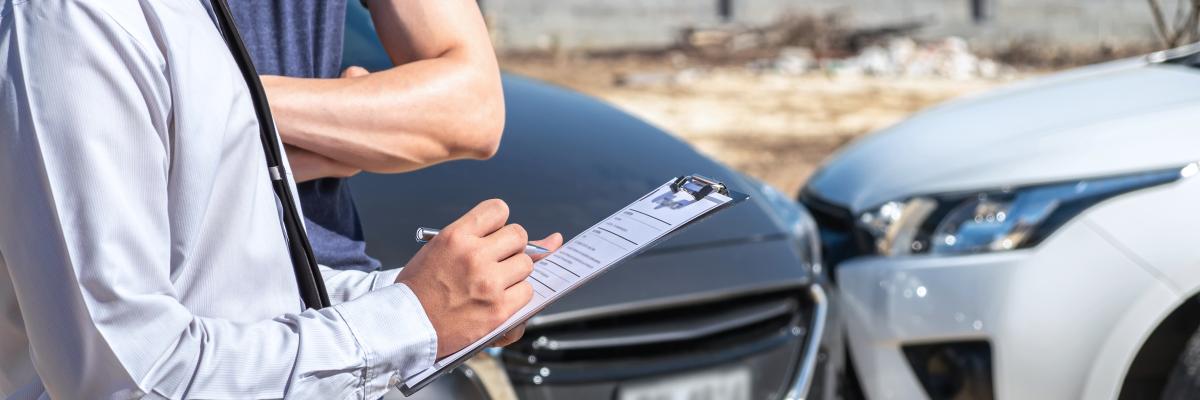
Filing an Insurance Claim Under Florida’s No-Fault Car Accident Law
Florida is a "no-fault" state regarding car insurance, which means that each driver's insurance company is responsible for covering their policyholder's injuries and damages, regardless of who was at fault in the accident. The purpose of the no-fault system is to reduce the number of lawsuits resulting from car accidents and to make it easier for individuals to recover damages.
However, it is important to note that the no-fault system only applies to personal injury claims; property damage claims are still subject to the traditional fault-based system. This contrasts with "fault" states, where the driver who caused the accident pays for the other driver's injuries and damages.
When a car accident occurs in Florida, each driver must file a claim with their insurance company to cover their medical bills, lost wages, and other damages, regardless of who was at fault for the accident.
Florida is one of the few states with a no-fault car insurance system. Under this system, drivers give up their right to sue the other driver for damages, except in severe injury cases. What should you do if you are one of those drivers filing an insurance claim under Florida’s no-fault law?
1. Seek Medical Help
Your health should always come first. If you sustained any injuries resulting from the accident, you will need to see a doctor or other medical professional as soon as possible. This will help document your injuries and ensure you receive necessary medical treatment. This is especially important if you sustained severe injuries from the accident, as proper medical care can be essential for your recovery.
2. Report the Accident to Your Insurance Company
The sooner you report your accident, the better. Most insurance policies require you to report the accident within a specific time frame, typically within 24-48 hours. In addition, most insurance policies state that you must report any accident you are involved in, regardless of who is at fault. In an article by The Ascent, failing to report an accident could result in your insurance company denying your claim or canceling your policy.
Reporting the accident to your insurance company also starts the claim process, which is how you can get compensation for any damages or injuries you have sustained. If you are not at fault for the accident, your insurance company will work with the other driver's insurance company to determine who is responsible for paying the damages. If you are at fault, your insurance company will work with you to choose the best action.
3. Provide Your Insurance Company With All the Necessary Documentation
You should always provide a copy of the police report, medical bills or receipts, and other documentation related to the accident to your insurance company. With sufficient documentation, it can be easier to process your claim and determine how much your insurance will cover under your personal injury protection (PIP) coverage. In some cases, a lack of documentation could result in your claim being denied or only partially covered.
4. Review Your Claim With Your Insurance Company
Your insurance company will review your claim and determine how much they will cover under your PIP coverage. If your damages and expenses exceed your PIP coverage, you can file a claim against the other driver's insurance company to recover the remaining amount. However, this will depend on the specifics of your case, the extent of your injuries and damages, and whether the other driver was at fault.
Additionally, reviewing your claim with your insurance company can also help you identify any potential disputes or disagreements that may arise. If you disagree with the coverage offered by your insurance company, you may be able to negotiate or appeal their decision.
Florida's no-fault law has a threshold for personal injury lawsuits. To file a lawsuit against the other driver, you must have sustained a permanent injury or have incurred at least $10,000 in medical bills. If you do not meet this threshold, you will be unable to file a personal injury lawsuit and will have to rely on your insurance coverage to pay for your damages.
If you have been involved in a car accident in Florida and are unsure how to proceed, it's a good idea to speak with an experienced personal injury lawyer. At Carrillo Injury Law, we can help you understand your rights and options under Florida's no-fault law and advise you on the best course of action. Call 352-371-4000 or email office@carrilloinjurylaw.com today!
Sources:
https://floridaphysicalmedicine.com/florida-no-fault-state/
https://w3ins.com/news/understanding-the-florida-no-fault-law-2/
- Log in to post comments